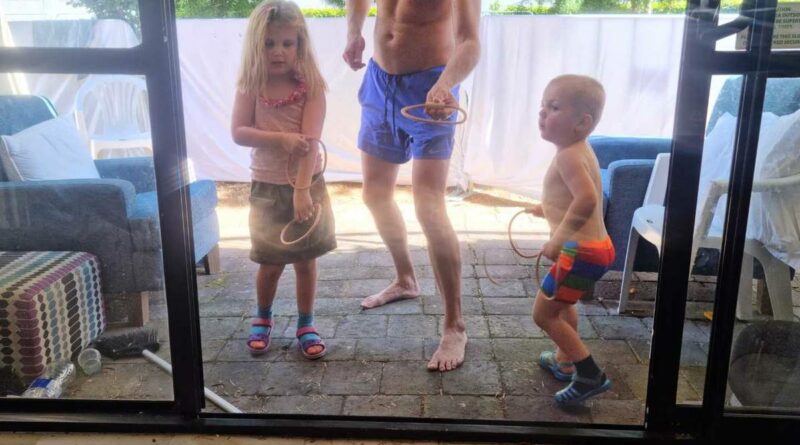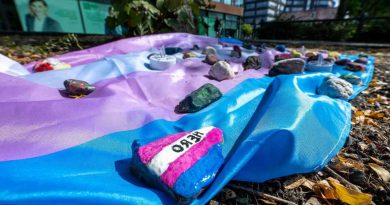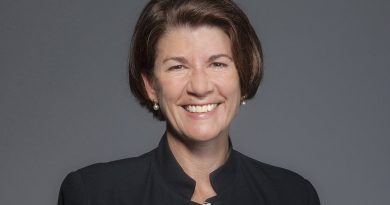Covid-19 Omicron: No early MIQ release for family who have stayed 22 days, returned seven negative tests
A family of five in MIQ who have returned seven negative Covid tests had been hoping for an early release now Omicron is loose in the community.
Dutch man Eelco Derkzen spoke to the Herald last week from MIQ, where he faced a 25 day stay with his wife and three children under six – after his daughter tested positive on day 1.
With his five-year-old daughter now considered recovered, and the remainder of the family continuing to test negative, they have just passed their 22nd day in managed isolation.
Recently advised there was a “blanket decline” on applications for early release, Derkzen is frustrated that community cases of Omicron are able to isolate at home while his family are in MIQ.
“We’re having a hard time, especially with our children, and we are more than willing to spend the last days of our isolation at home or at least somewhere where it’s private.
“We have looked at Airbnbs and we have already bought a car, so we have everything set in place to do that.”
A Ministry of Health spokesperson said from 9am on Friday 21 January 2022, anyone testing positive for Covid-19 must isolate for 14 days, and close contacts must isolate for 10 days.
This is regardless of variant or vaccination status, or whether someone is a border or community case.
They did not comment on whether returnees currently undergoing 20-plus day stays could leave early, but said departing MIQ guests had also been given messaging around reducing the risk of passing on any possible Covid-19 infection during the seven days after their stay.
Last week the ministry said extended MIQ stays were possible when a person in a couple or family tested positive, as the remaining close contacts would have to stay an additional 10 days after the infected person recovered.
“Anyone in the case’s bubble is considered a ‘bubble close contact’ and must have their isolation period reset for 10 days since their last exposure to the case,” the spokesperson said.
“If the bubble close contact(s) remain in the same room as the case, their isolation period will reset from the day the case is deemed recovered.
“It is in these scenarios that some ‘bubble close contacts’ may have lengthy stays in a MIQF.”
Twenty days is the maximum length of time a person could be kept in managed isolation under the Isolation and Quarantine Order 2020.
“However, Medical Officers of Health retain the ability to require returnees to remain in a MIQF for a further period of time under Section 70 of the Health Act if deemed clinically necessary from a public health perspective.”
The ministry acknowledged the inconvenience of extended stays in managed isolation but said it was important every precaution was taken to minimise the spread of Covid, especially the Omicron variant.
Derkzen’s understanding was that the extended stays in MIQ had been overly cautious in a bid to keep the Omicron variant out of the community.
“They have done this in light of the fear of Omicron, they have decided all these people have to stay if they’re a risk of spreading Omicron to the community,” he said.
“But at the moment this is no longer applicable because it’s spreading in the community.”
The Government moved the country into the red light setting on Sunday, following confirmation of Omicron cases in Motueka and Palmerston North. There are also community cases linked to the border in Auckland.
The family had moved from the Netherlands earlier this month for Derkzen’s wife’s job as a doctor in Wellington.
They had not been prepared to spend so much time in managed isolation, with Derkzen saying last week their MIQ experience had “tempered” their enthusiasm for New Zealand.
“When we came to New Zealand we knew there was going to be isolation and quarantine, we knew what was waiting for us.
“We were expecting 10 – 14 days – 14 if you’re positive.”
“But nobody was expecting this – I was reading on the Facebook group about MIQ, and there are even people who are stay 35 or up to 40 days.”
Derkzen said he knew of a pregnant woman who had been in MIQ for more than 30 days.
They had been understanding of New Zealand’s border controls but now felt it was disproportionate to the current situation.
“If you’re positive and the Omicron had not yet spread into the community, I can see why people have to isolate,” he said.
“But now what they’re doing is totally not in proportion to what’s happening. It’s a total disgrace.”
Source: Read Full Article


/cloudfront-ap-southeast-2.images.arcpublishing.com/nzme/K53MQ7EMKBGCQ2WI4W57COWKPE.jpg)
/cloudfront-ap-southeast-2.images.arcpublishing.com/nzme/6S76R5HQ73BKCHPINYGYQRA27U.jpg)
/cloudfront-ap-southeast-2.images.arcpublishing.com/nzme/SO52BV2E56IQDNNLT4RQPEHRSE.jpg)

